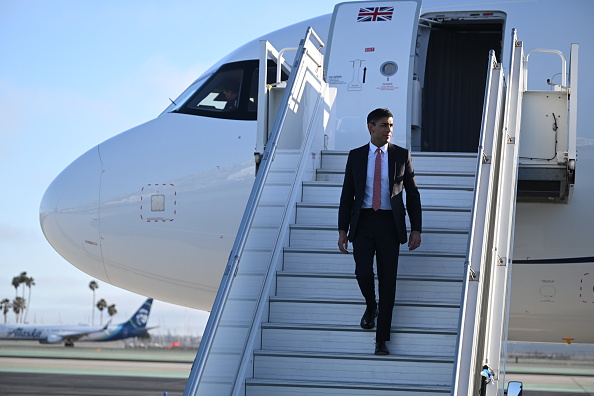Explainer: Sunak has a difficult balance to strike on China

Rishi Sunak was in the United States today to unveil his new AUKUS submarine deal with US President Joe Biden and Australian PM Anthony Albanese. The deal aims to increase defence capabilities in the Indo-Pacific and by its own nature, amp up its defence against China.
But the AUKUS alliance isn’t the one China is most worried about. Under a separate deal with Taiwan, the UK granted 25 export licences to the island for submarines’ components. In the first nine months of last year, the licences for these exports reached £167m in value.
To put it in simpler terms, Taiwan is gearing up for a potential confrontation with China, and the UK is providing a helping hand. Unsurprisingly, China is not happy with Britain’s involvement. If Taiwan and China were to come to a head, submarines would play a key strategic role.
On one side of the globe, China’s foreign ministry was out today condemning these export numbers. On the other, British ministers were getting ready for the publication of the refreshed version of the security integrated review out just now. The strategy, which outlines the government’s priorities in foreign policy and defence, heavily focuses on China and Russia.
When it comes to China, Sunak always had a hard time. The more hawkish MPs on his backbenches think he’s too soft on Beijing. Sunak constantly refused to call China a “threat to national security” – instead defining China as a challenge.
His more moderate language swept into the integrated review as well, where China was indeed described as posing “an epoch-defining challenge to the type of international order we want to see, both in terms of security and values”.
Alicia Kearns, the chair of the foreign affairs select committee, was unhappy about this wording, to say the least. Her predecessor Tom Tugendhat – now a minister for security – also pushed for a stronger stance on the risks posed by China.
Sunak is walking on a thin line, attempting a politically difficult balancing act. He maintains that China, after all, is the second biggest economy on the world stage. It would be politically foolish to further hostilities to a potential breaking point with such an important player on the global scene, he says. In this way, the prime minister is trying to shape the threat posed by China as primarily economic, while Alicia Kearns believes Beijing to be a threat to national security.
The points of contention between China and the UK are many – from Taiwan to human rights, from our presence in the Indo-Pacific to whether our politicians should be on TikTok. In his natural fashion, Sunak is going for moderation.
China hawks who criticise him, however, are not always being fair. In the review, Sunak acknowledges “China’s more aggressive stance in the South China Sea and the Taiwan Strait” and writes that together with Russia’s invasion of Ukraine, it is threatening to create “a world defined by danger, disorder and division”.
This isn’t the language of hands shake and smiles. What will be important in the end, however, is what this language translates into in terms of policy going forward.